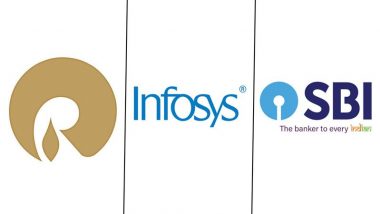Mumbai, September 8: Number of customers preferring to buy high-value products through instalments stood at an "all-time high" during the coronavirus pandemic, the country's largest private sector lender HDFC Bank said on Tuesday.
Even as concerns get raised about asset quality given the high job losses and salary cuts, the bank said it is "bullish" on the credit card equated monthly instalment (EMI) products, said Angshuman Chatterjee, head (consumer credit cards and digital acquisitions) at HDFC Bank. Also Read | Xbox Series X & Xbox Series S Prices Revealed, Likely to Be Launched on November 10, 2020.
According to some think-tanks, job losses are high in the organised segment, which has been a traditional favourite for the banks. As part of the EMI product, HDFC Bank ties up with merchants or product manufacturers to help a customer get a cheaper deal along with the ability to spread repayments over a period of time.
There are reports of demand having been hit severely in the economy, which has been driven by the consumption in the past few years. Also Read | PM Narendra Modi to Hold 'Svanidhi Samvaad' on September 9, to Interact With Street Vendors From Madhya Pradesh via Video Conference.
"Credit card EMIs are at an all-time high. So, customers are choosing to do larger spend by breaking them up into simple EMIs. That is helping the consumption," Chatterjee said in a video message for bank employees.
He added that the trend is visible across all segments of card holders, including the newly launched millennia cards targeted at the younger users.
On the 'millennia' line of cards launched in August 2019, the bank has added 15 lakh customers having the credit, debit and prepaid cards as against its target of reaching 20 lakh customers in two years, he said.
The 'millennia' is driving a bulk of new card acquisitions and accounts for a big part of the customer portfolio now, he said adding that the proportion of cards sourced digitally in the new line is three times that for others.
Chatterjee said that over 70 per cent of its customers are right now using e-commerce as against 47 per cent earlier, which shows a shift to online shopping during the pandemic, he said.
He said there is an urge to travel and do other discretionary spending among the customers, but access is an issue because of the restrictions imposed to contain the infections. Once the restrictions are lifted through things like the arrival of a vaccine, there will be a huge surge in consumption, Chatterjee said.
(This is an unedited and auto-generated story from Syndicated News feed, LatestLY Staff may not have modified or edited the content body)













 Quickly
Quickly




















